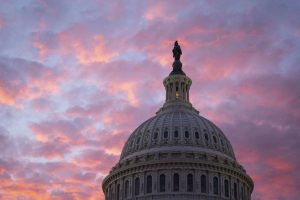Senate Approves Bipartisan Resolution to End Tariffs on Brazil, Signaling Profound Political and Economic Rifts
In a rare show of bipartisanship, the U.S. Senate on Tuesday approved a resolution to end tariffs on Brazilian imports, directly challenging the trade policies of former President Donald Trump. The move reflects growing frustration, especially among some Republican lawmakers with the lingering economic and diplomatic costs of protectionist measures imposed during Trump’s administration.
The resolution, which garnered support across party lines, aims to restore trade normalcy with one of South America’s largest economies. However, its fate remains uncertain as it heads to the House of Representatives, where divisions over trade and loyalty to Trump-era policies persist.

The Senate’s decision could mark a turning point for U.S. industries affected by tariffs on key Brazilian goods such as steel, aluminum, and agricultural products. American manufacturers and exporters have long complained that the tariffs inflated production costs and strained supply chains, while small businesses dependent on imports from Brazil faced higher prices and reduced competitiveness.
The resolution represents a potential revival of trade ties and a signal of renewed diplomatic engagement with Washington for Brazil. Analysts say lifting the tariffs could boost bilateral trade, stabilize commodity markets, and improve investor confidence across Latin America.
Politically, the vote underscores a widening rift within the Republican Party. Some GOP senators framed the measure as a necessary correction to what they see as economically damaging populism, while others viewed it as a betrayal of Trump’s America-first agenda. Democrats, meanwhile, largely supported the resolution as part of a broader push to restore international partnerships strained during the previous administration.
Culturally, the debate around tariffs has also taken on symbolic weight. To many Americans, especially those in agricultural and industrial regions, trade policy is about economics, national identity and how the US positions itself in an increasingly interconnected world.
![]()
Beyond the halls of Congress, the decision carries quiet but real consequences for families and workers. U.S. farmers who rely on affordable fertilizer imports from Brazil, and factory workers tied to supply chains involving Brazilian metals, may see relief from rising costs. On the other hand, some communities that benefited from tariff protections could face renewed competition, raising concerns about job security.
Whether the House will endorse the resolution remains unclear. House leaders have signaled cautious consideration, balancing pressure from business groups eager for tariff relief with political calculations tied to Trump’s enduring influence among conservative voters.
The Senate’s decision sends a clear message. As global markets evolve and domestic divisions develop, the United States is still grappling with how to balance economic pragmatism against political ideology, and a debate that cuts across party lines, touching every household that is connected to the rhythms of global trade.







